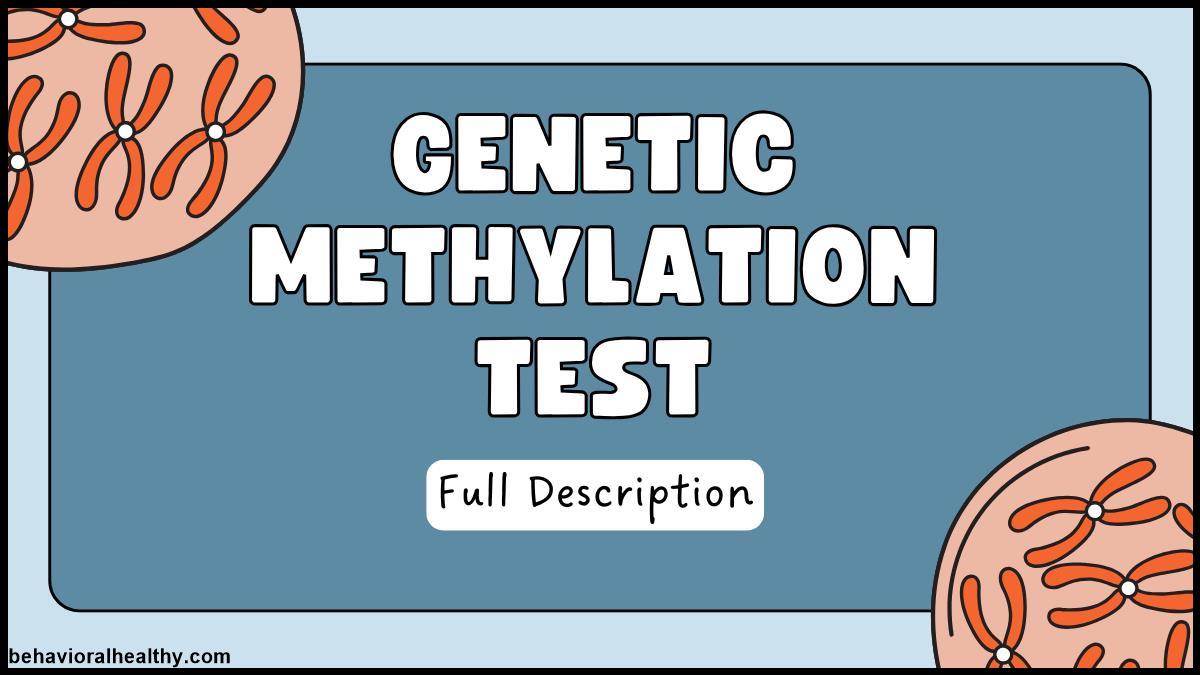The Genetic Methylation Test is one of the most recent developments in the field, and its predictive ability has garnered much interest.
Table of Contents
Can a Genetic Methylation Test Predict Your Health Outcomes?
Genetics is the science that has transformed how we understand health and risk for aging and disease. The Genetic Methylation Test is one of the most recent developments in the field, and its predictive ability has garnered much interest. The test studies patterns of DNA methylation. Chemical changes influence gene expression and provide insights into biological age, disease risks, and possibly longevity. In a recent study published in Cell Reports, researchers found that DNA methylation markers could predict the risk for certain types of cancer, including colorectal and lung cancers, with more than 80% accuracy.
In this blog, let's understand what the science behind DNA methylation is and how accurate genetic methylation tests are.
What Is Genetic Methylation?
The genetic methylation test is an essential epigenetic mode of action in which the addition of methyl groups alters the expression of the gene, regulating cell functions, aging, and the onset of diseases. DNA methylation is a major mechanism of gene expression regulation and involves changes in the genes' structure. These changes in gene structure participate in the control of various metabolic pathways, immune responses, and susceptibility to chronic diseases, including cancer and diabetes.
Some Important Features About DNA Methylation
- It doesn't change the fundamental sequencing of DNA but interferes with gene function.
- Key to aging, development, and diseases.
- Increased by diet, stress, environmental changes, and lifestyle choices.
Why Does This Matter for Predicting Health?
This is important along with health prediction because DNA methylation patterns dynamically change with time, and therefore, they could become biological markers of age and disease risk. Scientists have created epigenetic clocks, which are biological age estimators based on DNA methylation data (which may differ from chronological age).
This idea supports the Genetic Methylation Test, which studies these modifications to determine a person’s health trajectory.
How Does a Genetic Methylation Test Work?
A Genetic Methylation Test involves the following steps:
- Specimen Collection: Small amounts of blood, saliva, or tissues are collected.
- DNA Extraction and Analysis: The laboratory processes the sample for its degree of methylation in specific genes
- Comparison Against The Epigenetic Clock: The results are compared to databases that have information on known methylation patterns to arrive at biological age and health risk estimates.
- Health Report and Recommendations: The final report serves as a basis for understanding aging, disease risks, and lifestyle factors that can enhance health.
These tests purport to provide some information relating to conditions such as:
- Aging & Longevity: The difference between your biological age and your chronological age.
- Cancer Risk: Early epigenetic changes are linked to cancer.
- Heart Disease & Diabetes: Predicting Risks Based on Methylation Markers
- Cognitive Health: Identifying the risk for neurodegenerative diseases such as Alzheimer’s.
Use Your Genetic Methylation Test Results to Be Healthier
While genetics does influence health, epigenetics is modifiable, so you can affect your DNA methylation patterns through intelligent decisions.
Focus on Nutrition
- Eat foods that are friendly to methylation, such as leafy greens, nuts, and fish.
- Minimize processed foods, sugar, and alcohol.
- Take B vitamins (B6, B9, and B12) that help methylation.
Optimize Exercise & Movement
- Regular exercise degrades methylation and longevity.
- A mix of cardio, strength, and flexibility is best.
Get Sleep & Manage Your Stress
- Poor sleep and chronic stress accelerate epigenetic aging.
- Meditation, yoga, and deep breathing enhance gene expression.
Track Progress Over Time
Because DNA methylation is dynamic, regular testing helps individuals track health progress and improve wellness strategies.
Limitations & Ethical Considerations
Genetic Methylation Tests are promising, but there are a few challenges and ethical concerns.
Fidelity & Misunderstanding of a New Paradigm
- Methylation patterns are different in different people, so predictions are not as precise as standard genetic testing.
- Various commercial tests can give conflicting results, which can be confusing.
- The ongoing research is improving the accuracy and reliability of methylation-based predictions over time.
Privacy & Data Security
- DNA methylation data is sensitive personal information.
- Users need to keep their data safe and prevent it from being sold to third parties (for example, insurance companies).
- To ensure high privacy measures for genetic data, choosing reputable testing providers with stringent privacy policies becomes inevitable.
Psychological Impact
- The primary psychological impact of the test could be anxiety or stress stemming from the knowledge that one has an older biological age or is at increased risk for the disease, even if those conclusions are uncertain.
- The key to using the test as a motivational tool for positive change is the understanding that methylation can be changed.
- Consulting a health professional would provide a beneficial and constructive interpretation of one’s results.
Cost & Accessibility
- These tests are costly, and therefore, very few people can access them.
- And because they are not standard medical instruments, they are typically not covered by insurance.
- Progress in technology will further see adoption and, therefore, reduced costs of such tests to be more widely available.
Winding Up
The Genetic Methylation Test is an exciting breakthrough in health science that provides information regarding biological aging and disease risk based on epigenetic changes. Changeable lifestyle choices may improve favorable methylation states, as opposed to fixed genetic traits: choose good food, stay active, and reduce stress for mindful aging. While not a definitive predictor of disease, this test provides useful insights into harnessing one's health for optimal purposes. Empowered by this science, one can now make informed choices toward longer, healthier, and more vibrant living.

